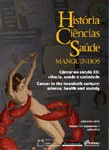Jan 2024
 The so-called Spanish flu was a traumatic experience for the population as a whole and a challenge for medicine and health professionals, with an impact that lasted beyond the years of the pandemic. It played a decisive role in promoting the establishment of the World Health Organization Influenza Control Programme, supported by the creation of the World Influenza Centre (London) and a network of regional and national laboratories to deal with it.
The so-called Spanish flu was a traumatic experience for the population as a whole and a challenge for medicine and health professionals, with an impact that lasted beyond the years of the pandemic. It played a decisive role in promoting the establishment of the World Health Organization Influenza Control Programme, supported by the creation of the World Influenza Centre (London) and a network of regional and national laboratories to deal with it.
However, according to María-Isabel Porras, Professor of History of Science at the Facultad de Medicina de Ciudad Real/Universidad de Castilla-La Mancha, the interest of historians in this pandemic is relatively recent. It was overshadowed by the attention given to the First World War, acquired prominence during specific subsequent health crises, and, above all, with the emergence of Aids and the questioning of the end of infectious diseases.
The book Pandemic Re-Awakenings: The Forgotten and Unforgotten ‘Spanish’ Flu of 1918-1919, Edited by Guy Beiner, Offers a multi-level and multi-faceted exploration of a century of remembering, forgetting, and rediscovering the influenza pandemic of 1918-1919. It offers a compilation of essays that seek to clarify the discrepancy between the magnitude of the 1918-1919 influenza.
According to Porras, the book explores a collection of personal, community, medical, and cultural stories from different national and transnational backgrounds to reveal the surviving memories of the acute health crisis, the oblivion, the silence, and the re-emergence of latent memories.
This publication has its origins in the research project entitled “Forgetting and remembering the Great Flu: Laying the foundations for a global-transnational history of cultural amnesia and rediscovery,” financed by the Israel Science Foundation and directed by the editor of the book and in two international meetings organized under the titles “Cultural histories of the Great Flu pandemic of 1918-1919: Representations and memories” and “Forgetting, remembering and rediscovering the Great Flu,” which took place in February and December of 2019 respectively, bringing together international researchers specializing in the influenza pandemic of 1918-1919.
The editor and the great majority of the authors of the chapters are historians specializing in different historical periods and approaches (social history, cultural history, history of medicine, etc.). Two science journalists and a museum curator complete the team. Only three of the researchers have an extensive background in the study of the 1918-1919 influenza, beginning in the 1970s or 1980s. The other 19 became interested in the pandemic as a result of the development of the severe acute respiratory syndrome (2003), the flu pandemic of 2009-2010, and, above all, the centenary of that health crisis essays highlight the way that the pandemic remained in individual and family memories, which were transmitted orally to descendants and were protected from official oblivion or cultural oblivion.
See the complete review written by María-Isabel Porras of the book Pandemic Re-Awakenings: The Forgotten and Unforgotten ‘Spanish’ Flu of 1918-1919, Edited by Guy Beiner.
BEINER, Guy (ed.). Pandemic re-awakenings: the forgotten and unforgotten “Spanish” flu of 1918-1919. New York: Oxford University Press, 2021. 391p.
Porras, M.-I.. (2023). Entre el olvido y el recuerdo de la pandemia de gripe de 1918-1919 en tiempos de la covid-19. História, Ciências, Saúde-manguinhos, 30, e2023057.
Read more on Influenza in HCS-Manguinhos:
Lessons for Covid-19 From a Century of Influenza in Brazil
In the 1918-19 influenza pandemic, Brazil faced twin problems: infection and hunger. More than a century later, Covid-19 again brought forth these interconnected problems.
Propaganda médica contra la influenza de 1918 en México América Molina del Villar analiza las ideas científicas sobre las causas y orígenes de la gripe, las cuales se reflejaron en el tipo de remedios y recetas médicas que se publicaron en la prensa.
México entre pandemias: la influenza de 1918 y la covid-19 La historiadora mexicana América Molina del Villar explora las similitudes entre la influenza de 1918 y la covid-19: en las dos enfermedades están involucrados el consumo y tratamiento de animales, las medidas para contener el contagio son las mismas y las dos pandemias ponen evidencia la desigualdad social.
The Brazilian Bombshell? The Long-Term Impact of the 1918 Influenza Pandemic Paper from SSRN constructs a unique database on socioeconomic and health outcomes for all districts in São Paulo using historical and contemporary documents.
How Germany influenced Brazilian academia during the Nazi regime Edited by Maria Björkman, Patrik Lundell, and Sven Widmalm, with the collaboration of André Felipe Cândido da Silva, research illustrates how German diplomacy influenced Brazilian academia during the Nazi regime.








